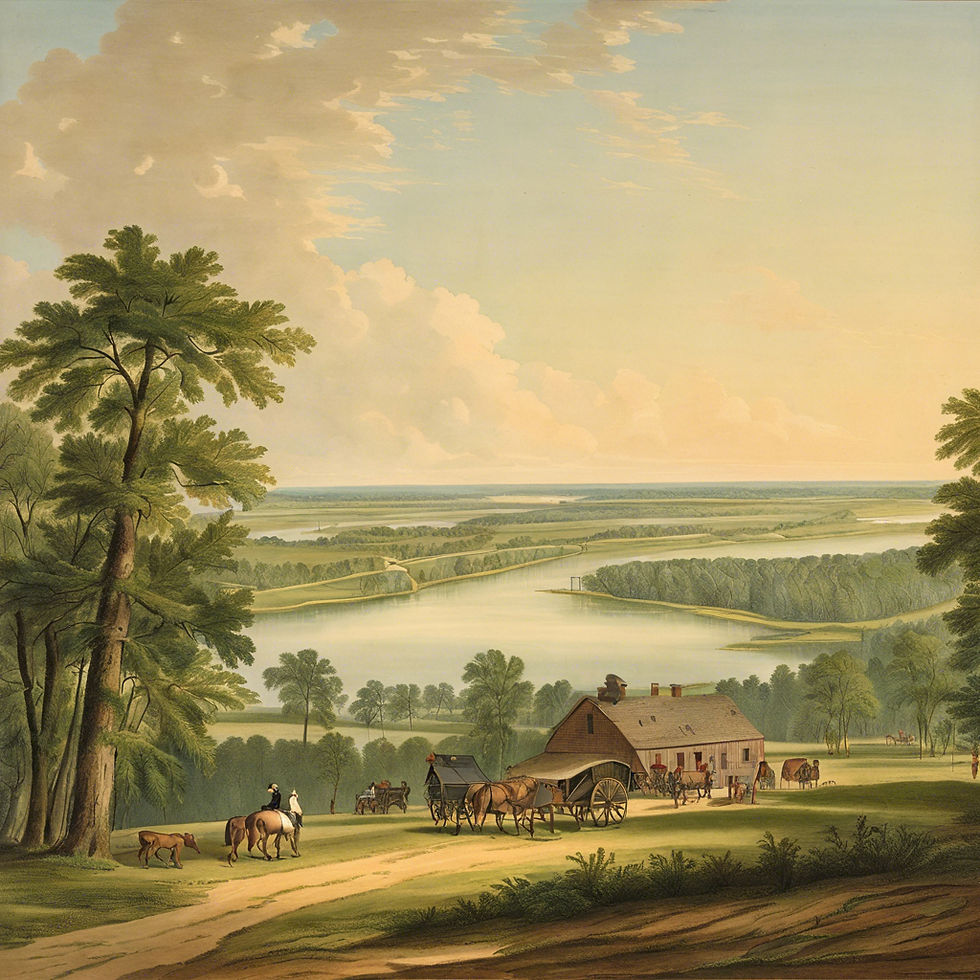
Discover
Our Story
Uncover the rich history of Oakfuskee, Alabama, through the lens of Sleuth Matron. Delve into the past and explore the untold stories that shaped the region. Our team of dedicated researchers is committed to preserving and sharing the historical legacy of this vibrant community. Join us on a journey through time as we unravel the mysteries of the past and shed light on the forgotten tales of Oakfuskee.
%20(2).jpg)
"AKFVSKE"

OKFUSKEE
Oakfuskee was an indigenous town in Tallapoosa County, Alabama. It was a prominent settlement for the Muscogee (Creek) Nation, situated along the Tallapoosa River. The town held strategic significance, positioned at the crossroads of two major trade routes: the Upper Trading Path connecting to Charleston, and the Okfuskee Trail leading to Savannah.
In the 18th century, Okfuskee was among the largest Creek towns, inhabited by numerous warriors and traders. The British constructed two forts, collectively known as Fort Okfuskee, to protect their trading interests with the Creek Indians. These forts played a role in the wider rivalry among European powers to gain influence over Native American tribes.
The town boasts a history enriched by the interactions between the Creek people and European settlers, encompassing trade, alliances, and conflicts. Menawa, the Red Stick leader notable for his significant role in the Creek War, hailed from Okfuskee.
The Okfuskee formed part of the former Creek (Muscogee) Confederacy in Alabama before their removal during the 1830s to the Indian Territory. Okfuskee County, Oklahoma, is named for a settlement where members of the tribe formerly lived.
The talwa (town) was located on the Tallapoosa River near Sandy Creek. The city occupied both sides of the river and lay at the intersection of two major trade routes: the Upper Trading Path, which connected it to Charleston, and the Okfuskee Trail, which connected it to Savannah.
The Upper Trading Path continued toward the west, connecting Okfuskee with the Chickasaw tribe.[4] In response to the French construction of Fort Toulouse, British traders from the Province of Georgia occupied a fort in Okfuskee, known as Fort Okfuskee, from 1735 to 1743. Traders from the Province of South Carolina built a second Fort Okfuskee, which was only occupied in 1744
Okfuskee was situated 15 miles south of the current location of Horseshoe Bend National Military Park. In 1833, the first County Court was held in November at Okfuskee, with Judge William Atkins preceding. The court continued until the county seat changed 1835 to Dadeville, Alabama. Records state that Okfuskee was near Young's Ferry. Okfuskee was the largest Native American town at that time. In the early 1800s, Great Britain had a military fort on the opposite side of the river, according to one record. It was about 1814 when the town was reduced to ash.
Judge Joseph Bryan, Harrison Young sheriff Nov 30, 1834, Daniel G Watson was clerk, Joseph J Johnston took over clerking in 1835.
W.G. Milligan owned and operated a flour and grist mill, and William J.Thrash also owned a flour and grist mill in Oakfuskee, both of which were used as power sources.
Families of Okfuskee, Alabama
Surname
First Name
Maiden Name
TARVER
Mollie
MENAWA (Hothlepoya)
MILNER
Claud
CROUCH
C. A.
MILNER
Gover
Okfuskee
Ancestry.com - A history of Methodism in Alabama
Ancestry.com - Alabama History, 1540-1872
Feb 23, 1881, page 2 - The Macon Mail at Newspapers.com
https://en.wikipedia.org/wiki/Okfuskee
Sources and Resources
* '''1953 Newspaper''': "okfuskee" Newspapers.com<br/>The Montgomery Advertiser (Montgomery, Alabama) Sun, Aug 30, 1953, page 32<br/>{{Newspapers.com|148097008}} (accessed 21 September 2024)
Martin Dam Project No.349 - Google Books
Report of the Select Committee of the House of Representatives, to which We... - Google Books
The Four Deaths of Acorn Whistler - Google Books
-
^ Martin, Jack B. (2000). A dictionary of Creek/Muskogee: with notes on the Florida and Oklahoma Seminole dialects of Creek. University of Nebraska Press in cooperation with the American Indian Studies Research Institute, Indiana University, Bloomington. ISBN 0-8032-3207-1. OCLC 43561668.
-
^ "Creek Research". Alabama Indian Affairs Commission. State of Alabama. Retrieved August 19, 2012.
-
^ Wright, Amos J. Jr. (2003). Historic Indian Towns in Alabama, 1540-1838. University of Alabama Press. p. 120. ISBN 0-8173-1251-X.
-
^ Piker, Joshua A. (2004). Okfuskee: A Creek Indian Town in Colonial America. Cambridge, Massachusetts: Harvard University Press. p. 36. ISBN 0-674-01335-2.
-
^ Harris, W. Stuart (1977). Dead Towns of Alabama. Tuscaloosa, Alabama: University of Alabama Press. p. 47. ISBN 0-8173-1125-4.
-
^ Braund, Kathryn. "Menawa". Encyclopedia of Alabama. Retrieved March 26, 2023.
